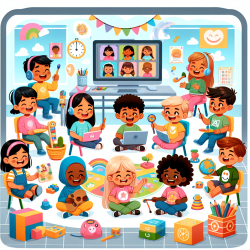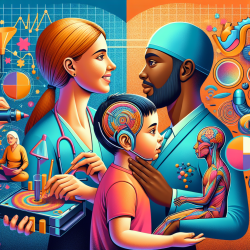Social Skills Training (SST) is an essential method designed to enhance social competence in individuals with autism spectrum disorder (ASD). It involves adult-directed instruction aimed at improving specific social skills. SST can be implemented in both group and individual settings, making it a versatile tool for educators, therapists, and families.
The Importance of SST
SST has been recognized as an evidence-based practice by the National Professional Development Center on Autism Spectrum Disorder. The effectiveness of SST is supported by numerous studies involving diverse age groups, from preschoolers to high school students. These studies demonstrate SST's ability to improve social interactions, communication skills, behavior, play, and cognitive outcomes.
How Does SST Work?
SST sessions typically involve structured lessons where new social skills are introduced and practiced. These sessions often include:
- A check-in to establish rapport and set the tone
- Introduction and modeling of new skills
- Role-playing or video modeling exercises
- Feedback and reinforcement of positive behaviors
- Opportunities for practice beyond the training environment
Who Can Implement SST?
SST can be conducted by various professionals such as teachers, special educators, speech-language pathologists, counselors, and psychologists. Additionally, parents and family members play a crucial role in reinforcing these skills at home. By practicing social skills in different settings, children can generalize their learning to various environments.
Practical Tips for Successful SST Implementation
To ensure effective SST implementation, consider the following steps:
- Assess the Learner: Conduct informal or formal assessments to identify current social competencies and areas needing improvement.
- Select Appropriate Peers: If using a group format, choose peers who can serve as models or provide support during sessions.
- Create a Structured Plan: Develop lesson plans that include clear objectives, teaching strategies, and reinforcement methods.
- Monitor Progress: Collect data on target behaviors to evaluate progress and make necessary adjustments to the training plan.
The Impact of SST on Learners with ASD
SST provides numerous benefits for learners with ASD. It helps them develop crucial social skills such as initiating conversations, understanding non-verbal cues, and managing emotions. These improvements not only enhance their ability to interact with peers but also boost their self-esteem and confidence.
Engaging Families in SST
Family involvement is vital for reinforcing skills learned during SST sessions. Parents can support their child's learning by creating opportunities for social interaction at home and in the community. Simple activities like role-playing common social scenarios or participating in group activities can significantly enhance skill retention.
Conclusion
Social Skills Training is a powerful tool that empowers children with autism to navigate social environments more effectively. By implementing SST thoughtfully and consistently, educators and families can foster meaningful improvements in a child's social abilities.
For more information on Social Skills Training and its application, please follow this link.










